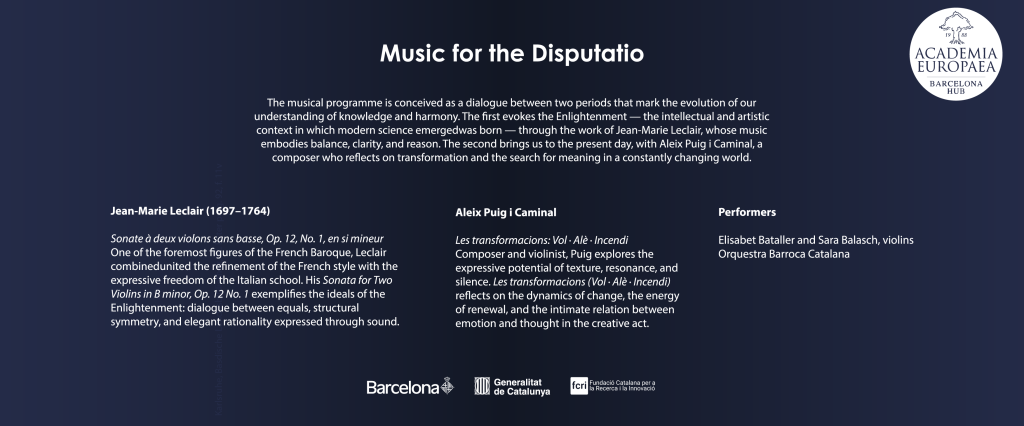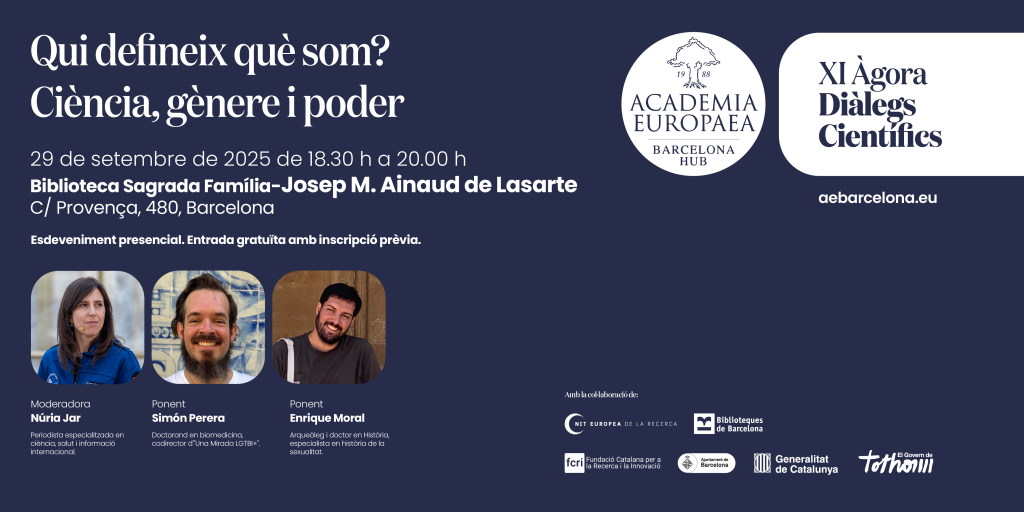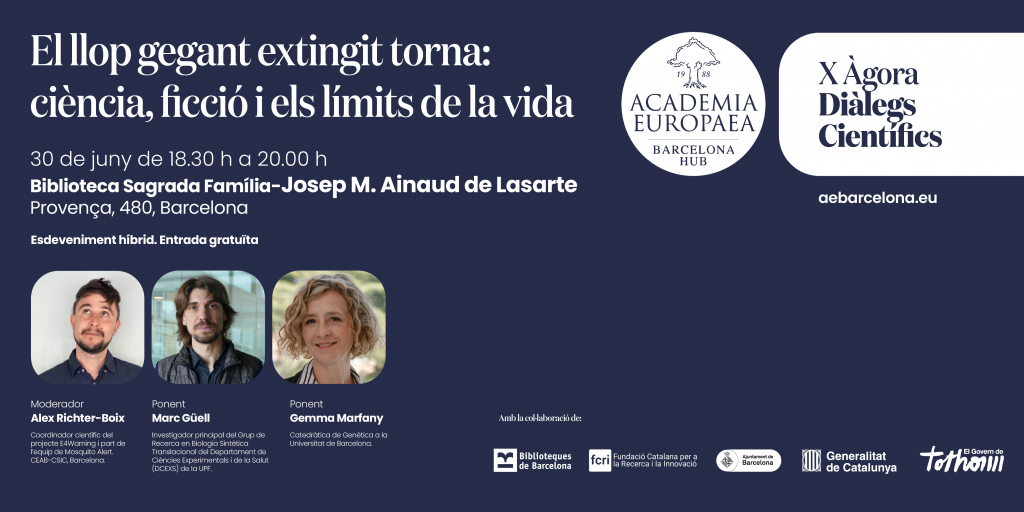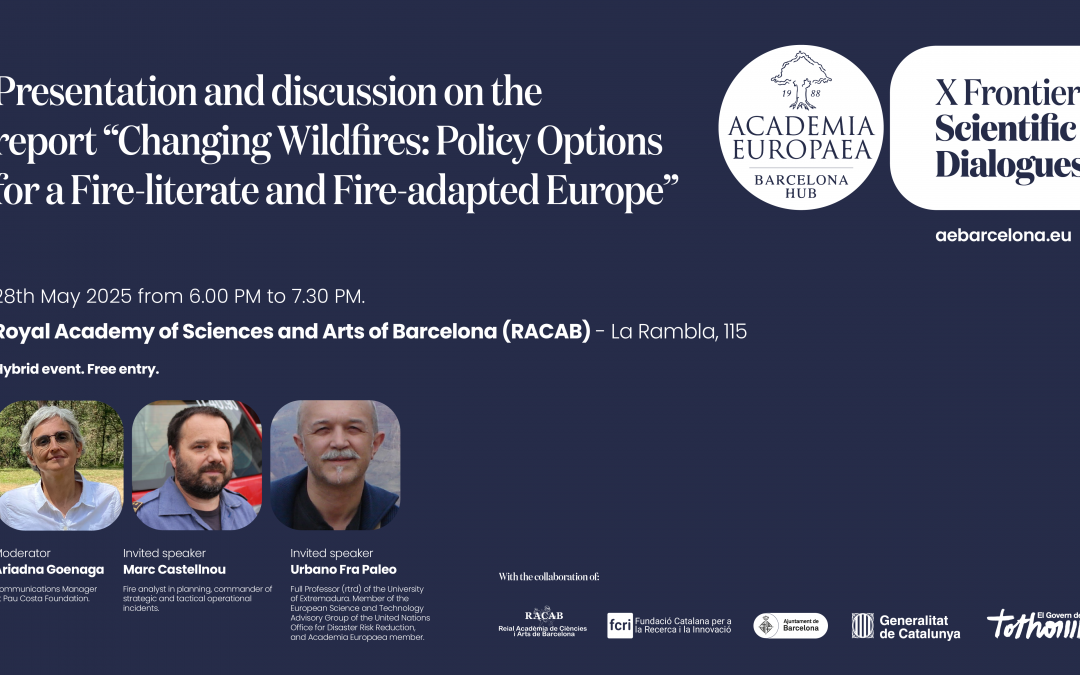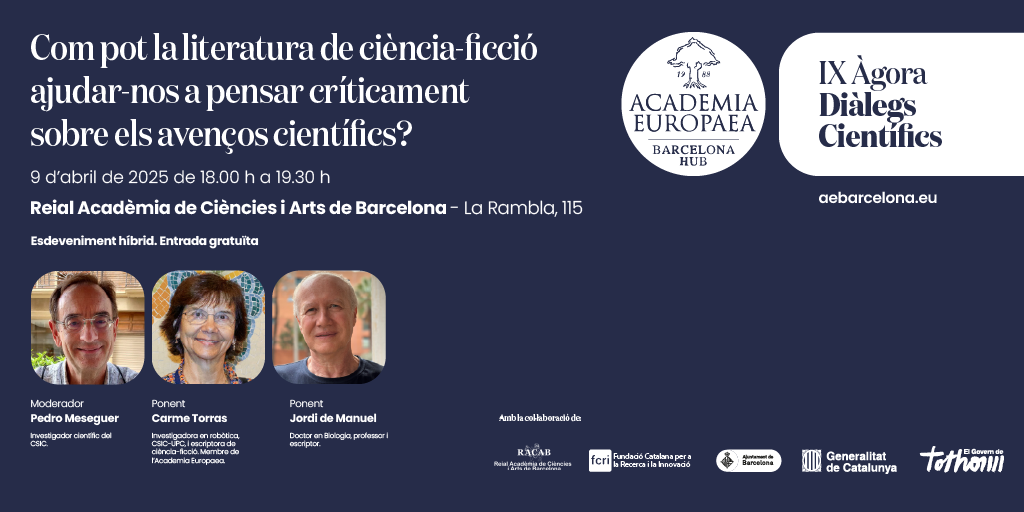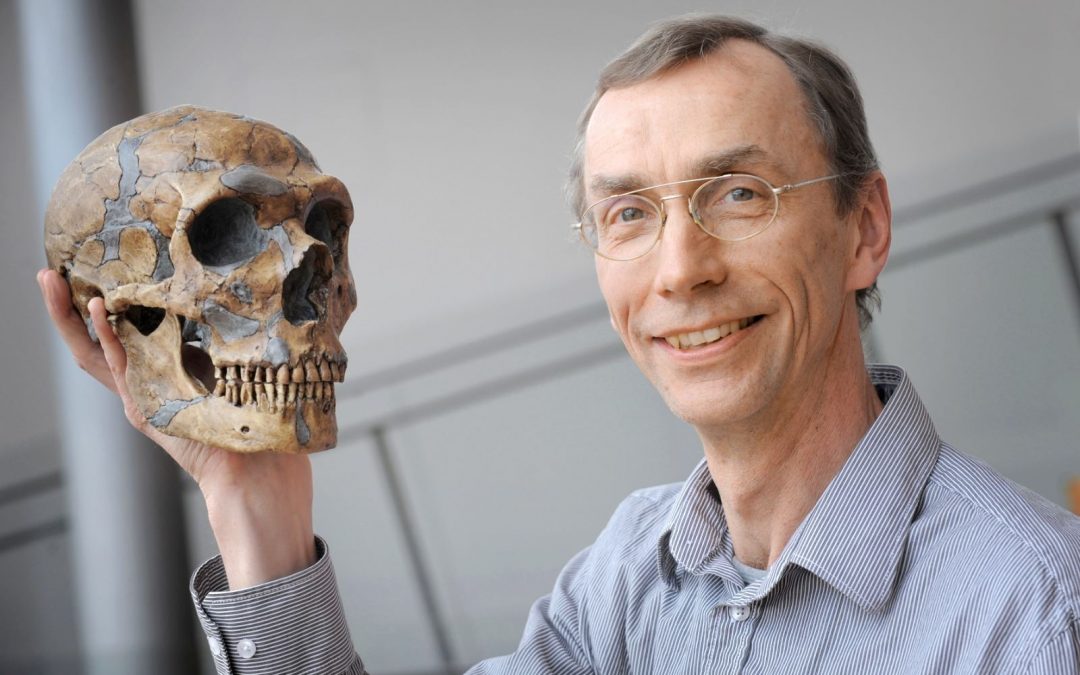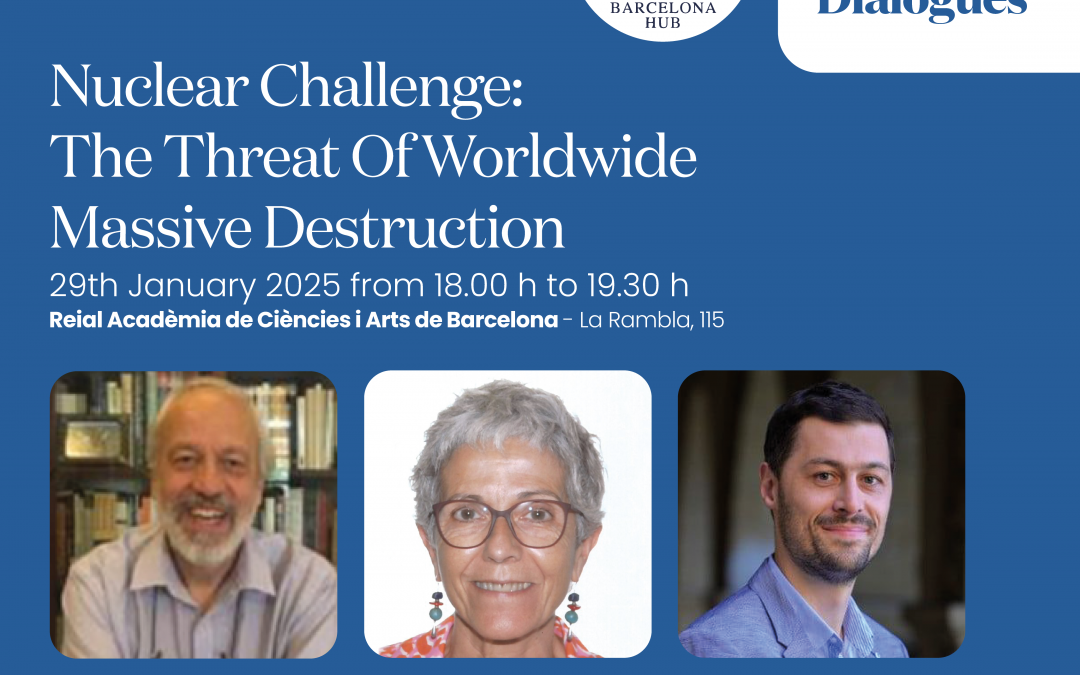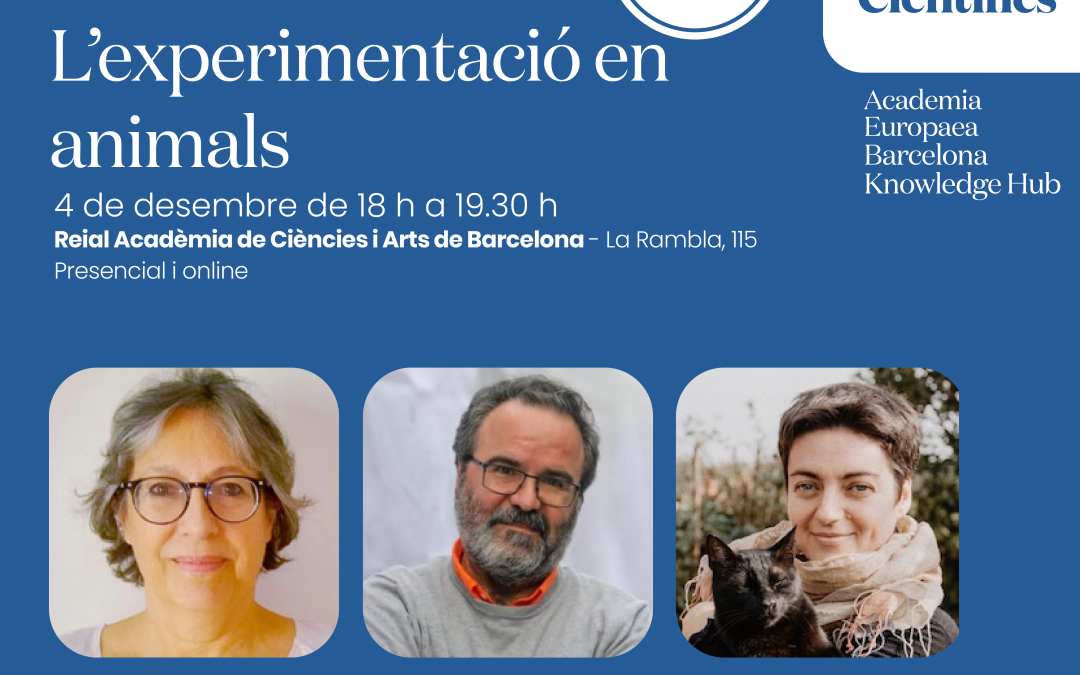Season’s greetings from the Barcelona Knowledge Hub
As the year draws to a close, I would like to extend my warmest wishes to all members and friends of Academia Europaea on behalf of the Barcelona Knowledge Hub.
This has been an especially active and rewarding year for our Hub. We have continued to foster dialogue across disciplines and generations through our regular programmes: the Hypathia Prize, which highlights outstanding contributions, last year to Svante Pääbo; our Agora and Frontiers Dialogues, which bring together experts to reflect on pressing societal challenges; and the Disputatio, which keeps alive a tradition of rigorous, open debate on fundamental questions.
Above all, this has been the year of Building Bridges. Hosting and organising this major event in Barcelona has been both a challenge and a privilege. It has demonstrated, once again, the value of Academia Europaea as a space where scholars from many disciplines and countries can meet, listen to one another, and build new forms of collaboration. The success of Building Bridges belongs to all who contributed: speakers and participants, the local organising team, our colleagues from other Hubs, and the central Office of AE. I am deeply grateful for their trust, generosity, and hard work.
Looking ahead, the mission of Academia Europaea feels more important than ever. At a time when societies face complex transformations —scientific, technological, environmental, social and cultural— there is a strong need for institutions that can connect rigorous knowledge with public debate, policy, and education. The AE and our Hubs play a key role in this: supporting excellent scholarship, creating opportunities for early-career researchers, and opening our activities to broader audiences in our cities and regions.
My wish for the coming year is that Academia Europaea will continue to strengthen these bridges, between disciplines and sections, between generations of scholars, and between the academic world and society at large.
From Barcelona, we remain committed to working closely with the other Hubs and with the Board of Academia Europaea to advance these goals and to contribute, in a modest but steady way, to a more informed and connected Europe. This year’s Disputatio is: The Disconnection Between Science and Society: A European Crisis of Trust? Let’s work on these issues, many times forgotten from academia.
On behalf of the Barcelona Knowledge Hub, I wish you a peaceful holiday season and a healthy, inspiring New Year.
With warm regards,
Jaume Bertranpetit
Director, Barcelona Knowledge Hub
Academia Europaea


